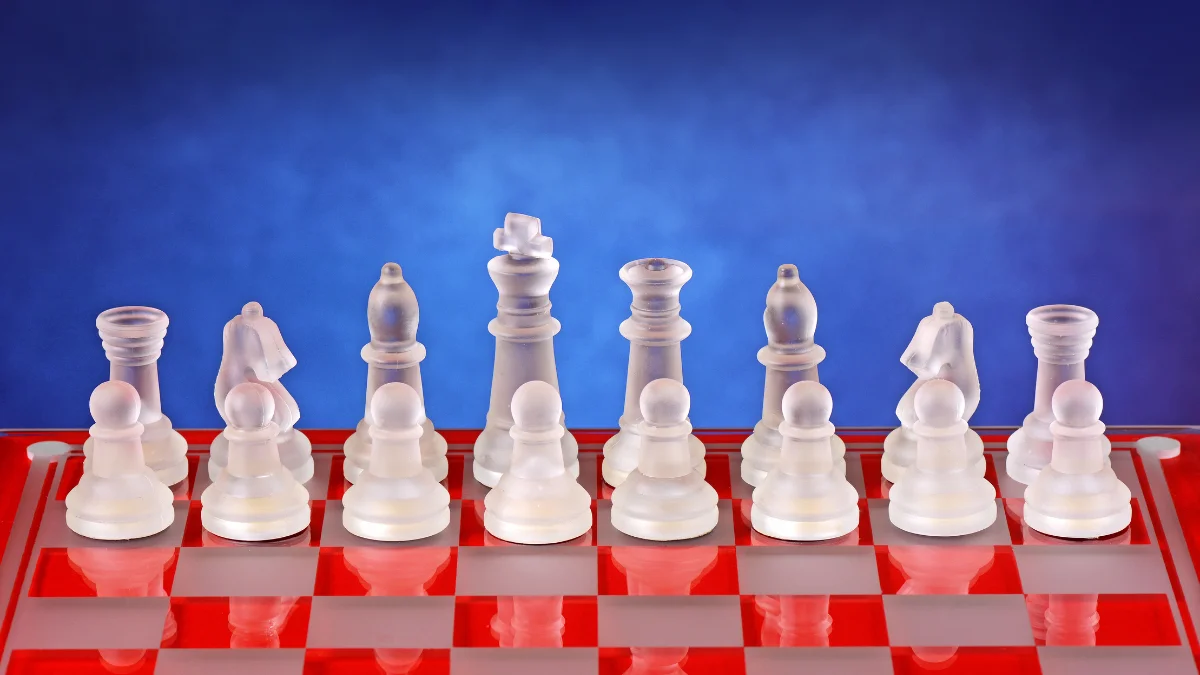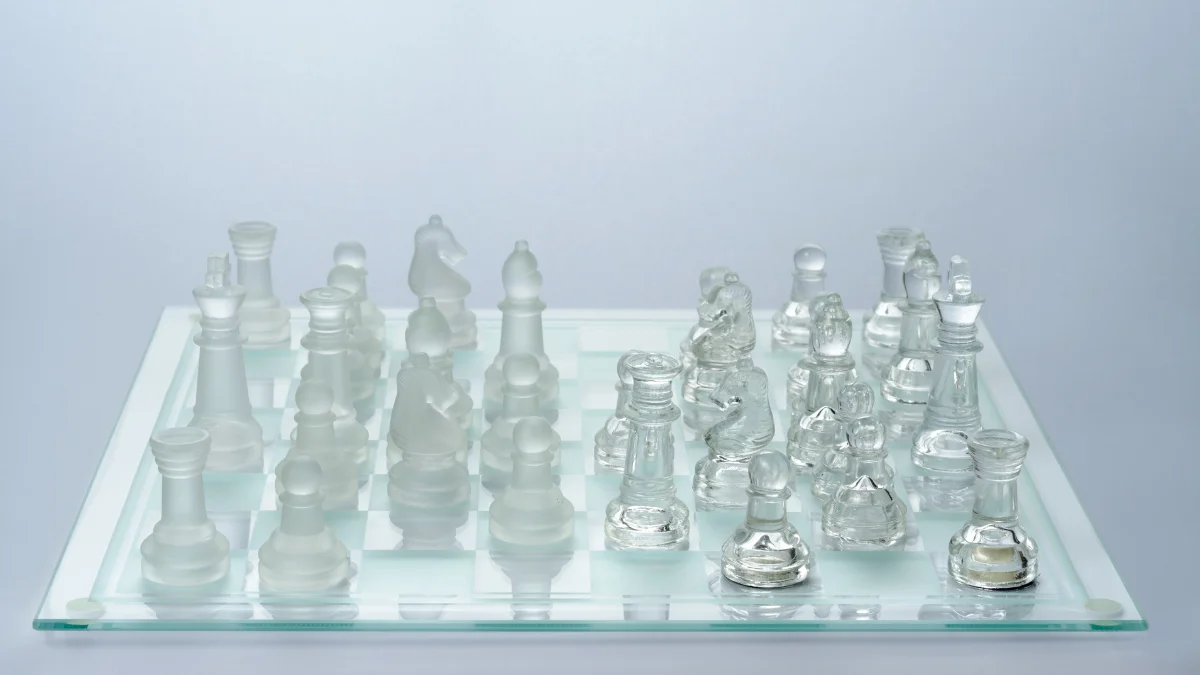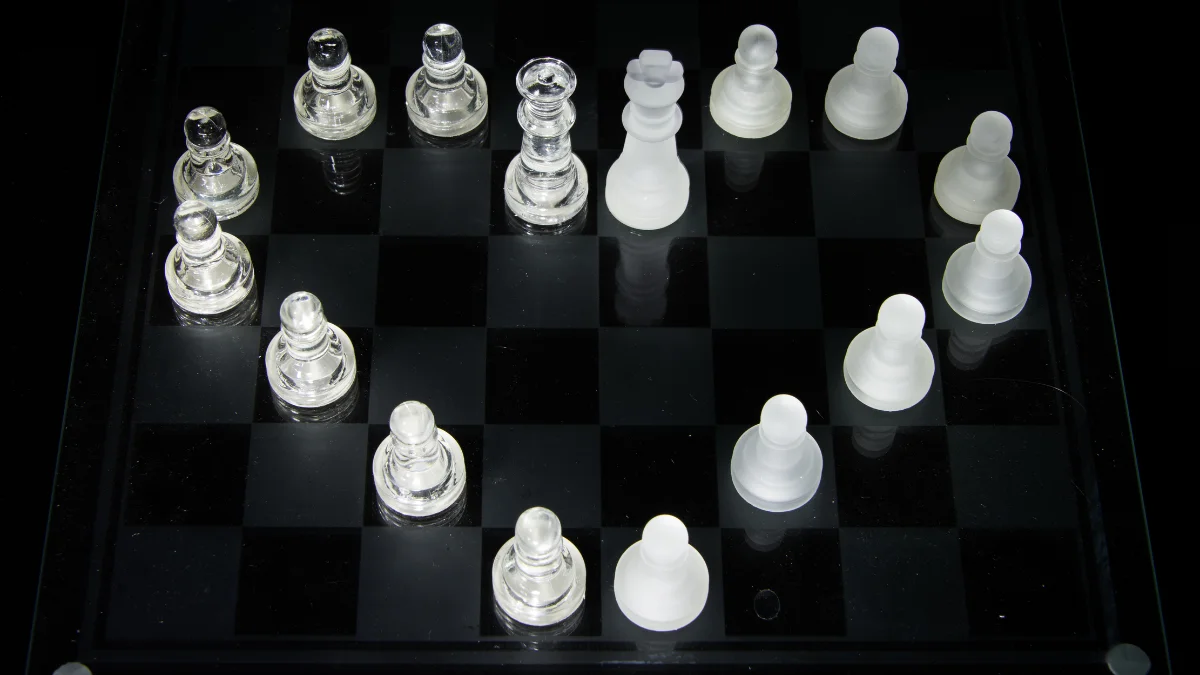In our latest exploration of chess, we’ll embark on a journey to unveil 47 distinct benefits that showcase how chess, far more than just a game, transcends the boundaries of mere entertainment. It emerges as a profound catalyst for personal growth, development, and enrichment across various facets of life. As we navigate through the intricate strategies, critical decisions, and intriguing dynamics of the chessboard, we will uncover the hidden gems of intellectual, emotional, relational, and even physical advantages that this ancient pastime bestows upon those who embrace it.
Let’s delve deeper into these benefits, exploring each category in detail. From sharpening intellectual acumen to nurturing emotional resilience, fostering stronger relationships to enhancing physical well-being, the world of chess offers a remarkable array of advantages. Join us as we journey through these facets, uncovering how chess can be a transformative force in your life, both on and off the board.
This post contains affiliate links. Please read our disclosure.
Intellectually:
1. Exercises Both Sides of the Brain

Chess ensures both halves of my brain are in top form. As I maneuver through complex chess positions, I can feel my analytical left brain collaborating seamlessly with my creative right brain, creating a harmonious mental symphony.
2. Increases IQ Significantly
The strategic depth and constant mental calculations have undoubtedly elevated my intelligence. I’ve seen a substantial improvement in problem-solving abilities and general cognitive sharpness since I began playing.
3. Develops Logical and Critical Thinking
Chess has been my crucible for critical thinking. The game’s unforgiving nature taught me the importance of logic and strategy. Over time, this has seeped into my daily decision-making, making me a more thoughtful and strategic thinker.
4. Enhances Memory Capacity
Remembering past games, analyzing different openings, and recalling patterns have stretched my memory capacity beyond what I thought possible. It’s a skill that extends to many aspects of life.
5. Strengthens Attention, Focus, and Concentration

In a world full of distractions, the game requires unwavering focus. It’s improved my ability to concentrate not only on the board but also in everyday tasks, making me more productive.
6. Promotes Imagination
Amidst the black and white squares, I’ve envisioned countless possibilities. This imagination has transcended chess, infusing creativity into my problem-solving and idea generation.
7. Develops Strategic Thinking and Tactical Planning
Each move on the board is a strategic choice, and this has honed my ability to plan and adapt in various situations, equipping me to tackle life’s challenges strategically.
8. Encourages Decision-Making Ability
The pressure of each move has sharpened my ability to make calculated decisions swiftly. This skill has proven invaluable in both personal and professional spheres.
9. Enhances Visualization Skills

Visualizing moves and future positions has not only improved my gameplay but also enhanced my capacity to envision and work towards my goals off the board.
10. Fosters Fluid Intelligence
My chess journey has been an exercise in fluid intelligence. The dynamic nature of the game continually challenges my ability to adapt and learn quickly. It’s a skill that’s transferable to many real-life situations.
11. Increases Processing Speed
In the fast-paced world we live in, the game has made me quicker at assessing situations and making decisions, ensuring I stay ahead of the curve.
12. Improves Reading Comprehension

Analyzing complex chess books and articles has significantly improved my own reading comprehension. It’s a skill that’s enhanced my ability to grasp and interpret information in various contexts.
13. Enhances Math Skills
Chess has been my math refresher. Calculating variations and assessing positions involve mathematical principles. It’s like a fun math workout that’s kept my mathematical skills sharp.
14. Promotes Creative Problem-Solving
Every game presents unique challenges, and finding creative ways to overcome them has made me a more inventive problem solver in everyday life.
15. Nurtures Spatial Skills and Pattern Recognition
Recognizing patterns and visualizing the board’s geometry has improved my spatial awareness, making me more adept at navigating both physical and mental landscapes.
Emotionally:
16. Increases Self-Awareness

Every move reflects my thought process and decision-making. It’s taught me to understand my strengths and weaknesses, a valuable lesson in self-awareness.
17. Develops Patience
Chess has taught me to be more patient. Waiting for the right moment to strike or defend has translated into increased patience in life situations, making me calmer and more composed.
18. Boosts Creativity
The need to think outside the box has ignited my creativity. Whether in chess or other endeavors, I’ve learned to approach problems with fresh, imaginative perspectives.
19. Strengthens Self-Control
The urge to make impulsive moves can be tempting, but chess has taught me to resist, fostering self-discipline that extends to all areas of life.
20. Builds Confidence
With every game, win or lose, my confidence grows. This newfound self-assurance has positively influenced how I tackle challenges outside the chessboard.
21. Encourages Flexibility
Adaptability is key in chess, as plans can change in an instant. This adaptability has made me more resilient in the face of life’s unexpected twists and turns.
22. Enhances Common Sense

The game’s logical nature has sharpened my ability to make sensible decisions in everyday situations, ensuring I approach problems with practicality.
23. Provides Relaxation from Daily Stresses
The intense focus required during a game serves as a therapeutic escape, offering a mental reset from the pressures of daily life.
24. Instills Delayed Gratification

Waiting for the right moment to strike or execute a long-term plan has taught me the value of delayed gratification, a skill that pays off in many aspects of life.
25. Teaches Anticipation of Others’ Moves
Predicting opponents’ moves and strategies has improved my ability to foresee others’ actions in various situations, aiding me in making informed decisions.
26. Helps Understand the Endgame and Closing Deals
Learning to navigate the endgame has provided valuable insights into how to conclude matters effectively, whether in chess or real-life negotiations.
27. Develops Perseverance

In the face of adversity on the board, I’ve learned to push forward, a lesson that’s translated into unwavering determination in achieving my goals.
28. Promotes Problem-Solving Skills
Analyzing complex positions and finding optimal solutions has made me a more adept problem solver, both in chess and daily life.
29. Enhances Emotional Resilience
The ups and downs of the game have taught me to manage emotions under pressure, a skill that’s been invaluable in handling life’s challenges with composure.
Relationally:
30. Facilitates Socialization
Whether playing over the board or online, it’s provided a platform to meet like-minded individuals, fostering friendships and camaraderie.
31. Teaches Sportsmanship
In victory and defeat, I’ve learned the importance of grace and respect. It’s a lesson that extends beyond the chessboard, shaping my interactions with others.
32. Promotes Empathy for Opponents

I’ve learned a lot about empathy thanks to chess. Understanding an opponent’s perspective and strategies has developed my capacity for empathy, allowing me to connect with others on a deeper level.
33. Enhances Communication Skills
Discussing moves, analyzing games, and sharing insights with fellow players have honed my ability to convey ideas effectively, improving my overall communication skills.
34. Encourages Teamwork
Collaborating with chess partners or analyzing positions with friends has highlighted the power of teamwork, a lesson that’s been instrumental in various group endeavors.
35. Fosters a Sense of Camaraderie
Shared victories and defeats with fellow players have created a sense of belonging and unity, enriching my social experiences.
36. Teaches the Value of Winning and Losing Gracefully

Understanding that victory and defeat are part of the game has instilled a sense of humility and graciousness that I carry into other aspects of life.
37. Makes It Easier to Make Friends
The common interest in the game has paved the way for meaningful connections and lasting friendships, enriching my social circle.
38. Expands Perspective
Playing against opponents from different backgrounds and cultures has broadened my horizons, fostering a more inclusive and open-minded outlook.
39. Strengthens Relationships
Chess has been my bond builder. Whether playing with family, friends, or colleagues, it has provided opportunities to strengthen connections and create lasting memories together.
Physically:
40. Supports Brain Health

Chess has been my ally in brain health. The mental exercise it offers contributes to maintaining cognitive function and preserving brain health as I age.
41. Aids in Alzheimer’s Prevention
Research suggests that engaging in mentally stimulating activities like chess can reduce the risk of cognitive decline, providing added motivation to keep playing.
42. Helps in Schizophrenia Treatment
For individuals facing challenges like schizophrenia, the game has been shown to be a helpful tool in therapy and cognitive rehabilitation.
43. Facilitates Stroke Recovery
The cognitive demands of the game can assist in retraining the brain after a stroke, promoting recovery and regaining lost skills.
44. Manages ADD and ADHD Symptoms

For those dealing with attention disorders like ADD and ADHD, chess offers a structured and engaging activity that can help manage symptoms and improve concentration.
45. Offers Occupational Therapy
Chess is a versatile tool used by therapists to improve fine motor skills, coordination, and cognitive abilities in individuals with various disabilities.
46. Reduces Stress, Anxiety, and Panic Attacks
Engaging in the game provides a mental escape from stressors, promoting relaxation and reducing symptoms of anxiety and panic attacks.
47. Builds Self-Esteem
Chess has been my own confidence booster. Each game, win or lose, contributes to a sense of achievement, gradually building self-esteem and self-assurance that extends beyond the chessboard.
Conclusion
Chess is more than just a game; it’s a pathway to enriching every aspect of your life. Harness this ancient game’s transformative potential, enhancing every facet of your journey. From sharpening your mind to fostering resilience, from building connections to supporting brain health, chess offers a diverse range of advantages. These 48 benefits are just the beginning of how chess can transform your life. May your chessboard be a canvas for growth and transformation.